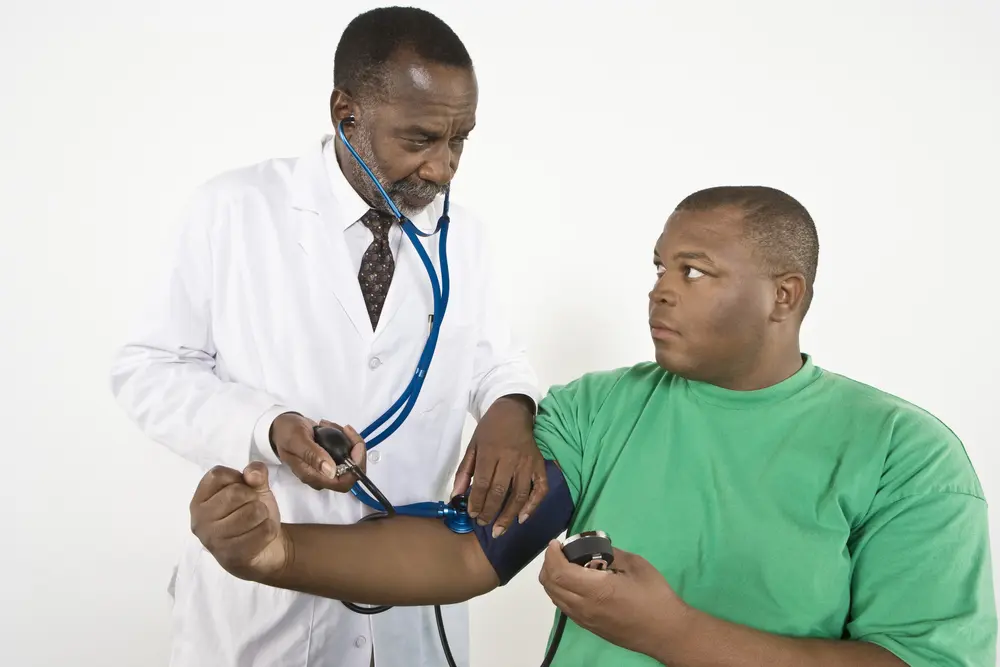The loss of American Idol star Mandisa Hundley to obesity-related complications has opened up a conversation many aren’t ready to have. Her story reflects a deeper truth about trauma, weight, and the Black experience in America that goes far beyond simple choices about diet and exercise.
The invisible weight of trauma
The connection between trauma and obesity isn’t just psychological theory, it’s lived experience. For many in the Black community, food becomes more than sustenance, it transforms into a coping mechanism for generations of unspoken pain. This relationship with food often starts long before understanding sets in.
Through wounded eyes
A young Deborah Gregory searched through garbage cans in a basement, desperately looking for something to eat. This wasn’t a scene from a movie, but her reality in the foster care system. Like many of the 500,000 children in American foster care, most of whom are Black, her earliest memories were tangled with fear, hunger, and survival.
When food becomes salvation
Working at a wealthy family’s mansion, Gregory would secretly feast on their leftovers, finding momentary peace in full meals. These moments of satisfaction were more than just about hunger, they were attempts to fill an emotional void left by years of neglect and abuse.
The beauty myth that destroys
In the late 1970s, Gregory pursued modeling in an industry that wasn’t built for bodies like hers. The pressure to conform to white beauty standards added another layer to her already complex relationship with food and body image. Every pound lost or gained became a battle not just with her body, but with her identity.
Finding healing in unexpected places
Therapy became Gregory’s lifeline, though it wasn’t an easy journey. Her therapist helped her understand that her weight struggles weren’t just about food, they were about surviving trauma that began long before she could even speak. This realization changed everything.
The science behind the struggle
Recent research has unveiled the concept of Black post-traumatic stress disorder, showing how historical trauma gets passed down through generations. This isn’t just about individual choices, it’s about a collective experience that affects how people relate to food, their bodies, and themselves.
Breaking the cycle
Understanding the link between trauma and obesity doesn’t mean accepting it as destiny. It means acknowledging that healing requires more than just diet plans and exercise routines. It requires addressing the deep-seated emotional wounds that many carry.
The path to healing
The journey to healing isn’t linear. After returning from modeling in Italy, Gregory gained weight while continuing therapy. But for the first time, she understood that her worth wasn’t tied to a number on the scale. It was about healing the scared child who once searched through garbage for food.
A community in recovery
Mandisa’s story reminds the Black community that no one is alone in this struggle. Many face similar battles with weight and trauma. The first step toward change is breaking the silence and acknowledging that relationships with food often have roots in experiences not fully processed.
Moving forward together
The conversation about obesity in the Black community needs to include trauma-informed approaches to healing. This means creating safe spaces for discussing both physical and emotional health, understanding that they’re interconnected in ways society is only beginning to understand.
The power of speaking up
Gregory’s story serves as a testament to the healing power of sharing these experiences. Each voice that speaks up about the connection between trauma and weight helps another person feel less alone in their struggle.
Finding strength in vulnerability
Throughout her journey, Gregory discovered that confronting her past traumas wasn’t a sign of weakness but rather a demonstration of immense strength. Her experiences in the foster care system, though painful, helped shape her understanding of the complex relationship between emotional wounds and physical health.
Beyond individual healing
Gregory’s story illustrates how personal healing can inspire community-wide conversations. Her journey from foster care to becoming a New York Times bestselling author shows how confronting trauma can lead to both personal and professional transformation.
Building a new narrative
The impact of intergenerational trauma on health outcomes in the Black community requires a new approach to wellness. Gregory’s experiences highlight the need for healthcare providers to consider historical context when addressing obesity and related health issues.
Hope for the future
While the past cannot be changed, the future remains unwritten. Understanding the role of trauma in relationships with food and body image is the first step toward creating healthier futures for current and future generations of Black Americans.
A legacy of resilience
Gregory’s journey from trauma to triumph serves as both a warning and an inspiration. Her story demonstrates how confronting painful truths about the past can lead to healing and transformation, not just for individuals but for entire communities.















